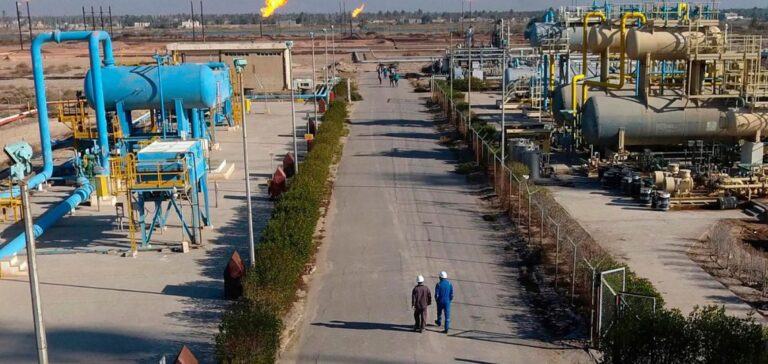Following statements by Iraqi Oil Minister Hayan Abdul Ghani, who appeared to reject any further production cuts at the upcoming OPEC+ meeting on June 1, an Iraqi oil official clarified the country’s position. The official, speaking on condition of anonymity, said Iraq is not opposed to extending current quotas, but is resisting the idea of further cuts that could affect its economy and its plans to increase production in partnership with international oil companies.
Compliance constraints and economic implications
Iraq has struggled to meet its production target of 4 million b/d, including a voluntary reduction of 223,000 b/d since December 2023. In April, Iraq pumped 4.24 million b/d, including an estimated 200,000 b/d from the semi-autonomous Kurdistan region, over which the Iraqi federal government claims to have no control. Nevertheless, Iraq has committed to a series of “compensatory cuts” over the coming months, affirming its commitment to the OPEC+ agreement.
Dialogue and Future Decisions
Minister Abdul Ghani’s statements at an oil and gas licensing ceremony in Baghdad indicated that Iraq felt it had sufficiently reduced its production. However, Iraqi officials expressed to Commodity Insights their reluctance to cut production further, given the country’s dependence on crude export revenues to finance its budget. In addition, many Iraqi oil fields are operated under complex technical service contracts by international companies such as ExxonMobil and BP, and further cutbacks could result in Baghdad having to compensate these companies for unproduced barrels.
Market consensus and outlook
Mike Muller, Head of Asia for the Vitol Group, said it was unlikely that Iraq would deviate from the policy of its OPEC+ counterparts. “Smart bets in trading circles will assume that Abdul Ghani didn’t mean he was going to break away from the group and open the floodgates. Quite the contrary,” he said on a Gulf Intelligence podcast. The market consensus is that OPEC+ will maintain existing production cuts at their next meeting.
As OPEC+ prepares for its June meeting, Iraq plays a crucial role in discussions on future production levels. Although the country faces significant internal challenges, its commitment to the Group’s objectives remains strong, illustrating the complexity of global oil production dynamics.






















